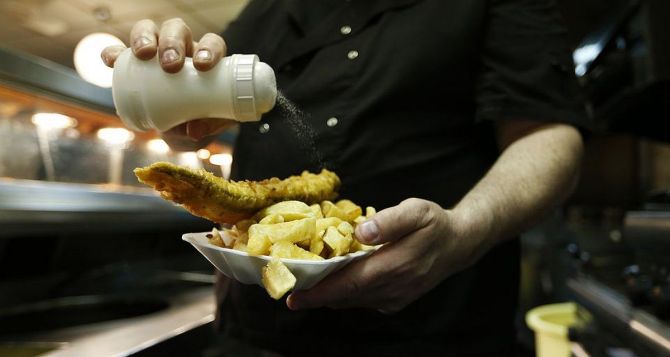Except for Westlife Foodworld (Westlife), a weak 2022-23 (FY23) January-March (fourth quarter, or Q4) quarter performance and a muted near-term outlook led to a downward revision of earnings estimates for quick-service restaurant (QSR) players.

Brokerages have slashed estimates by as much as 10 per cent for 2023-24 (FY24) and 2024-25 (FY25).
The downward revisions have weighed on the performance of listed players, who have underperformed the market with low single-digit returns over the past month.
Before this, stocks, led by Burger King franchisee Restaurant Brands Asia (RBA), had seen a major rally in the April-May period, delivering double-digit returns.
In addition to the FY24 April-June quarter (first quarter, or Q1) performance, expectations of a slow recovery and margin pressures could put additional pressure on the stocks.
The muted March quarter (Q4FY23) showing will continue into the June quarter (Q1FY24).
“Most growth metrics are expected to see further declaration in Q1FY24 after seeing a weak second half of FY23.
"Growth trend lines are significantly lower than sustainable numbers,” say analysts of HDFC Securities, led by Naveen Trivedi.
In the March quarter (Q4FY23), Pizza Hut and Kentucky Fried Chicken (KFC) franchisees, Devyani International (Devyani) and Sapphire Foods India (Sapphire), underperformed expectations with weak same-store sales growth (SSSG) or like-for-like (LFL) growth and margin performance in Q4FY23.
Overall revenue growth for the two companies was largely on account of store expansion, even as SSSG lagged behind.
A similar outcome is expected in Q1FY24, with double-digit year-on-year (YoY) growth, largely led by rapid network expansion, says Kotak Securities.
Devyani’s 28 per cent growth in revenue in Q4FY23 was led by a 33 per cent increase in store additions, even as the demand environment was weak.
While SSSG for KFC was up 2 per cent, it was down 3 per cent for Pizza Hut.
Sapphire, too, had a similar trend in LFL sales growth, with KFC growing 2 per cent; Pizza Hut business was down 4 per cent.
Due to declining sales and weak operating leverage, in addition to higher prices of inputs such as milk and cheese, the profitability of the two companies were hit.
The Sapphire management highlighted that high inflation led to customer downtrading and a cut in average bill value, resulting in an inferior sales mix and feeble margins.
While operating margins for KFC of the two franchisees were down 110–220 basis points (bps), the metric for Pizza Hut slid 490-530 bps on a sequential basis.
While Devyani’s medium-term guidance of mid-single-digit SSSG growth and 300 store additions remain, Sapphire, too, is sticking to 5-7 per cent SSSG guidance and an annual expansion plan of 130–160 stores.
At 18x its FY25 enterprise value to operating profit, valuations for Sapphire as compared to Devyani’s 31x are undemanding, say analysts of IIFL Securities, led by Percy Panthaki.
LFL growth for the largest listed player, Jubilant FoodWorks (Jubilant), although better than estimates, was flat, indicating a consumption lethargy.
While the 8 per cent revenue growth was due to the addition of stores, the double-digit order growth was a positive for the company.
The company, which is expanding its network by adding 200–225 Domino’s stores and 30-35 Popeyes stores, indicated that demand revival would not be immediate.
In addition to weak sales growth, inflationary pressures dragged down operating profit margins by 490 bps YoY.
Research analyst Amnish Aggarwal of Prabhudas Lilladher Research has cut the earnings per share estimates of the company by 9.5 per cent for FY24 and changed his rating from ‘buy’ to ‘accumulate’ following the recent run-up in stock price.
Jubilant’s earnings cuts are led by tepid demand, delayed margin recovery, an increase in initial losses in Popeyes, and sustained high capital expenditure guidance of Rs 700 crore.
The two companies that reported growth on the SSSG front are RBA and Westlife.
While SSSG for the former came in at 8.3 per cent and was resilient in the current market situation, it was weaker than Westlife, which reported 14 per cent growth, highlights JM Financial Research.
While the RBA management is optimistic about the outlook and expects a 10 per cent SSSG for FY24 (8 per cent in FY25) due to portfolio initiatives, maturity of stores, and gradual recovery, analysts of JM Financial, led by analyst Mehul Desai, highlight that the financial performance has lagged behind the guidance in the past, and the narrative is yet to play out.
The brokerage has a ‘hold’ rating as it awaits better execution.
Westlife continues to remain an outlier on the revenue and margin fronts.
While revenues grew 22 per cent, operating profit was up 41 per cent.
The operating profit margins expanded by 210 bps due to premiumisation, pricing actions, and cost efficiencies.
The firm has guided for an addition of 40–45 stores in FY24 and has a target of reaching 580–630 stores by calendar year 2027 (from the current tally of 357).
Analysts at Axis Capital have a positive view of the firm, given its expansion, menu innovation, and execution, and it remains the preferred pick among listed QSRs.











